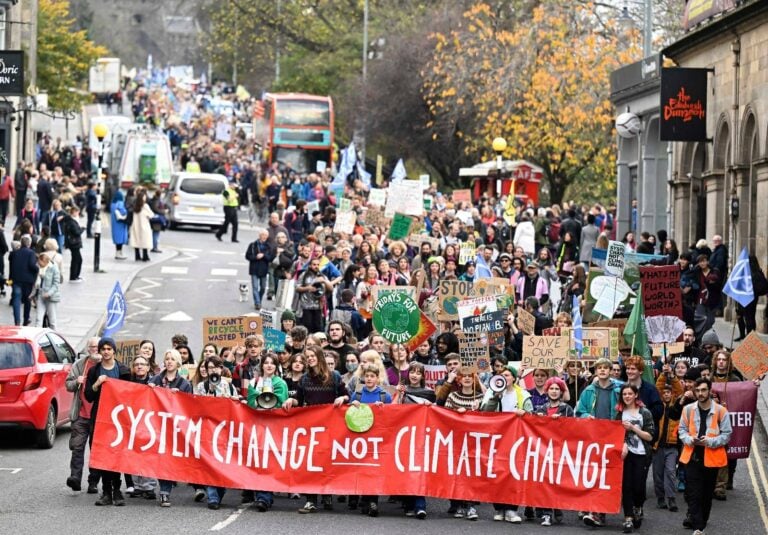
Lack of vision in the EU’s financial reforms
On the eve of the G20 Summit in Cannes, SOMO has analysed the European Union’s financial reform process, agreed on by the G20, in its new report “The missing dimension. How European financial reforms ignore developing countries and sustainability”. SOMO concludes that the EU’s financial reforms have been not only much too slow and too weak – aggravating the debt and bank problems in the Eurozone.
On the eve of the G20 Summit in Cannes, SOMO has analysed the European Union’s financial reform process, agreed on by the G20, in its new report The missing dimension. How European financial reforms ignore developing countries and sustainability. SOMO concludes that the EU’s financial reforms have been not only much too slow and too weak – aggravating the debt and bank problems in the Eurozone. What’s more, the EU’s reforms are lacking in vision with respect to what the function of the financial sector should be, and for whom. This report highlights the fact that the various financial reforms of the European Union (EU) have ignored the impact on developing countries as well as the participation by developing country supervisors, although European banks operate in these countries. Additionally, the current lack of reform of food derivative markets continues to influence food prices for the poor.
The SOMO report reveals how the EU’s focus on financial stability has overlooked the financial sector’s role in society, which should range from providing access to basic financial services and job creation, to financing a transition to an economy that does not contribute to climate change. As evident in the recent warning issued by the International Labour Organization (ILO) concerning increasing unemployment(1), the consequences of the missing dimension in financial reforms are becoming clear. The contrasts also are become clearer, with a number of investment banks and speculators still making huge profits in 2011. Deutsche Bank made 4.1 billion Euro in profits in the first 3 quarters of 2011 for example (1.8 billion Euro more than in the whole of 2010)(2).
“The missing dimension of the EU’s financial reforms results in Europe’s current crisis again having a major impact around the world, which will be a subject at the G20. However, people who are protesting and increasingly discontent(3) want the financial sector to be at the service of society and not vice versa whereby tax payers need to bail out the banks”, explains SOMO-researcher Myriam Vander Stichele. The new SOMO report provides some concrete recommendations on how the EU’s financial reforms need to be improved. All financial services, products and derivative trading need to be assessed for their risks and usefulness to society and the environment, as well as for financial stability. The supervisors and regulators of developing countries should have a say in the supervision and decisions concerning European banks that are operating in their country. Overall, speculative banking and financial markets need to be separated from retail banking and basic financial services, and that also means preventing financial links (e.g. loans) between banks and hedge funds.
_________________________
1. ILO, World of Work Report 2011- ILO says world heading for a new and deeper jobs recession, warns of more social unrest, Press release, 31 October 2011, http://www.ilo.org/global/about-the-ilo/press-and-media-centre/news/WCMS_166395/lang–en/index.htm
2. See: Deutsche Bank, Press releases, 3 February 2011, 28 April 2011, 26 July 2011, 25 October 2011, http://www.db.com/medien/en/content/press_releases_2011_oct.htm
3. See: ILO, ibidem.
Related news
-
Why share buybacks are bad for the planet and peoplePosted in category:Opinion
 Myriam Vander StichelePublished on:
Myriam Vander StichelePublished on: Myriam Vander Stichele
Myriam Vander Stichele -
 The trillion-dollar threat of climate change profiteersPosted in category:Long read
The trillion-dollar threat of climate change profiteersPosted in category:Long read Myriam Vander StichelePublished on:
Myriam Vander StichelePublished on: -
The treaty trap: The miners Published on:
 Vincent KiezebrinkPosted in category:Publication
Vincent KiezebrinkPosted in category:Publication Vincent Kiezebrink
Vincent Kiezebrink

